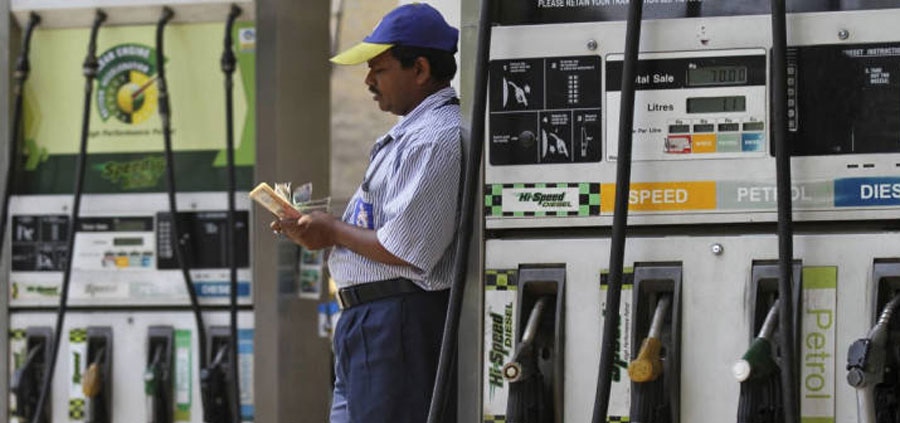India affected by oil price
May 23, 2018 | Expert Insights

As the price of oil continues to increase, in part due to geopolitical disruptions in Iran, India’s economy could be further disrupted. The price of petrol and diesel are already on the rise and India may have to turn to alternate suppliers if US sanctions on Iran affect its oil exports.
Background
Globally, petrol and diesel prices vary in accordance to crude oil prices, processing and distribution costs. It also depends on local demand, the strength of the currency and taxes; and on availability. Petrol prices aren’t standard in India. It varies from city to city in the country. These prices depend on state taxes as well as on import locations.
From 2000 to 2008, the price of oil saw an unprecedented spike, going from under $25 per barrel to almost $150 per barrel. Rapidly increasing demand in emerging economies such as China and India and production cuts by the Organization of Petroleum Exporting Countries (OPEC) in the Middle East drove the price of oil to record heights.
In January 2018, for the first time in three years, the price of oil reached a record high of $70 per barrel. The last time oil was valued this much was in December 2014. Sparked partially due to sharp decline in the global equity markets, oil prices fell for a sixth day on February 9, 2018. The price of Brent oil was at $64.34 a barrel, down from $64.90 and US WTI crude was at $60.53 from $61.25.
On April 24th, 2018, international oil prices hit their highest levels since late 2014. The price of oil climbed higher than $70 and Brent crude futures, the international benchmark for oil prices, climbed as high as $75.20.
Analysis
The price of oil has continued to climb in recent weeks. This is due to market concerns on how US sanctions on Iran would affect oil supply. Recently, President Trump withdrew US from the Iran nuclear agreement and Washington has imposed sanctions on the region. The US Secretary of State Mike Pompeo has threatened harsher sanctions in the coming months.
India, in particular, would be affected as it heavily imports from Iran. In fact, in April 2018 it had been reported that Indian state refiners planned to almost double oil imports from Iran in 2018-19 due to incentives offered by Tehran. The recent geopolitical shift has thus affected Indian petrol and diesel prices. On May 22nd, it was reported that state-run marketers had hiked petrol and diesel prices for the ninth day in a row. With global oil prices projected to cross $100 per barrel, the price of petrol has risen to Rs 76.87 a litre in Delhi and Rs 84.70 in Mumbai while Diesel is selling at Rs 68.08 in Delhi and Rs 72.48 in Mumbai.
The head of finance for the state-run Indian Oil Corp (IOC), A.K. Sharma spoke about the situation noting, “So far we haven’t cut any volumes from Iran. We have to see how strongly the U.S. takes up sanctions. From our side, we would like to continue. Otherwise we will look to our traditional suppliers,” A.K. Sharma said.
He said that India could look for alternatives but it would prove to be more expensive and thus would affect the prices further. “Iran’s high sulphur oil can be replaced with other crudes. It is just a case of economics. Replacing will mean slightly cost disadvantage,” Sharma added.
IOC chairman Sanjiv Singh said the government had so far not directed refiners to cut imports from Iran. “We have to see how situation unfolds in future,” he said. “We are working on a strategy. We are working on alternate plans if those volumes go down, then how do we manage the situation,” Singh said.
“India’s reliance on oil revenue has now surpassed the Malaysian government’s reliance on oil revenues — and Malaysia is an oil exporter,” said Vikas Halan, senior vice-president at Moody’s Investor Services, the rating agency. “The government can always roll back excise duty — there is no one stopping them — but the issue is, how will they compensate for the loss of revenue?”
Assessment
Our assessment is that the conflict between Iran and the US will continue to play a role in the price of oil. However, the increasing production from the US could offset the rise and prevent it from reaching $100 per barrel. With regards to India, rise in oil prices would negatively affect the Indian economy. India, which depends on imports to meet 80% of its oil needs, will have to spend approximately Rs. 9,200 crores more every year for a one dollar per barrel increase in crude prices. This would surely affect the common man the most.
Read more: The rising oil price








Comments